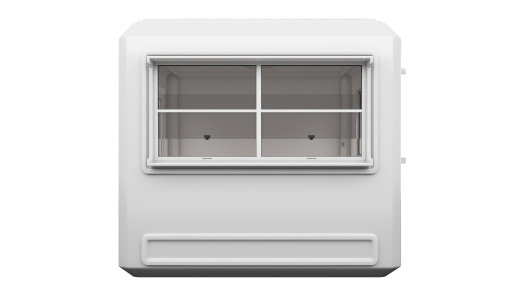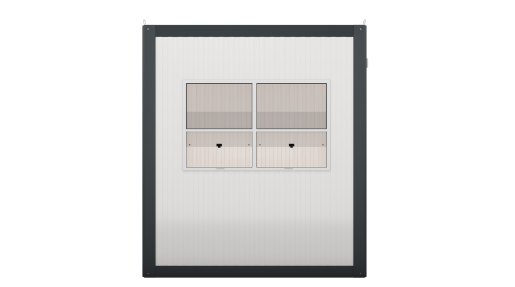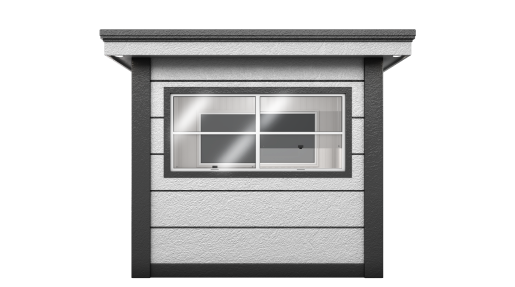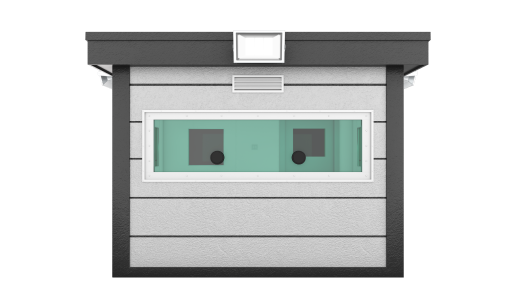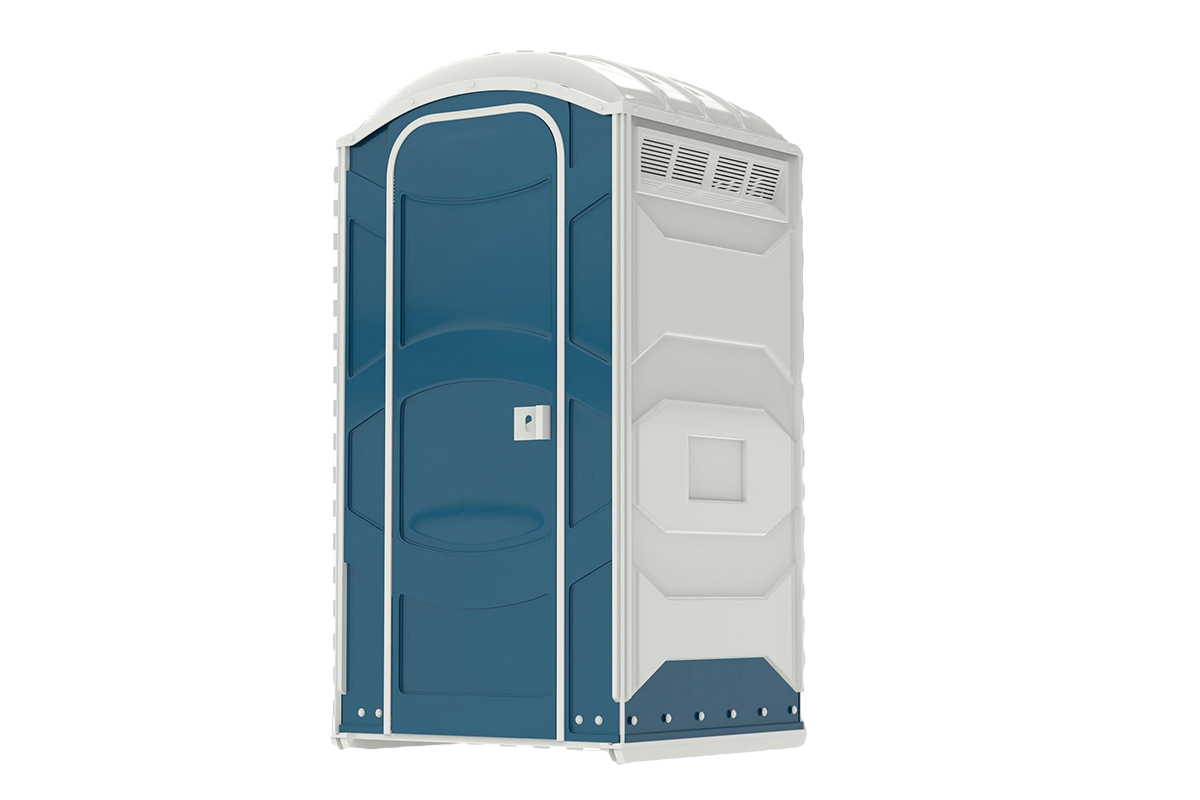Ticket booths play a crucial role in providing convenient and efficient ticketing services for various events, venues, or transportation systems. These booths can be designed to be portable, mobile, outdoor, or prefabricated, catering to different needs and environments.
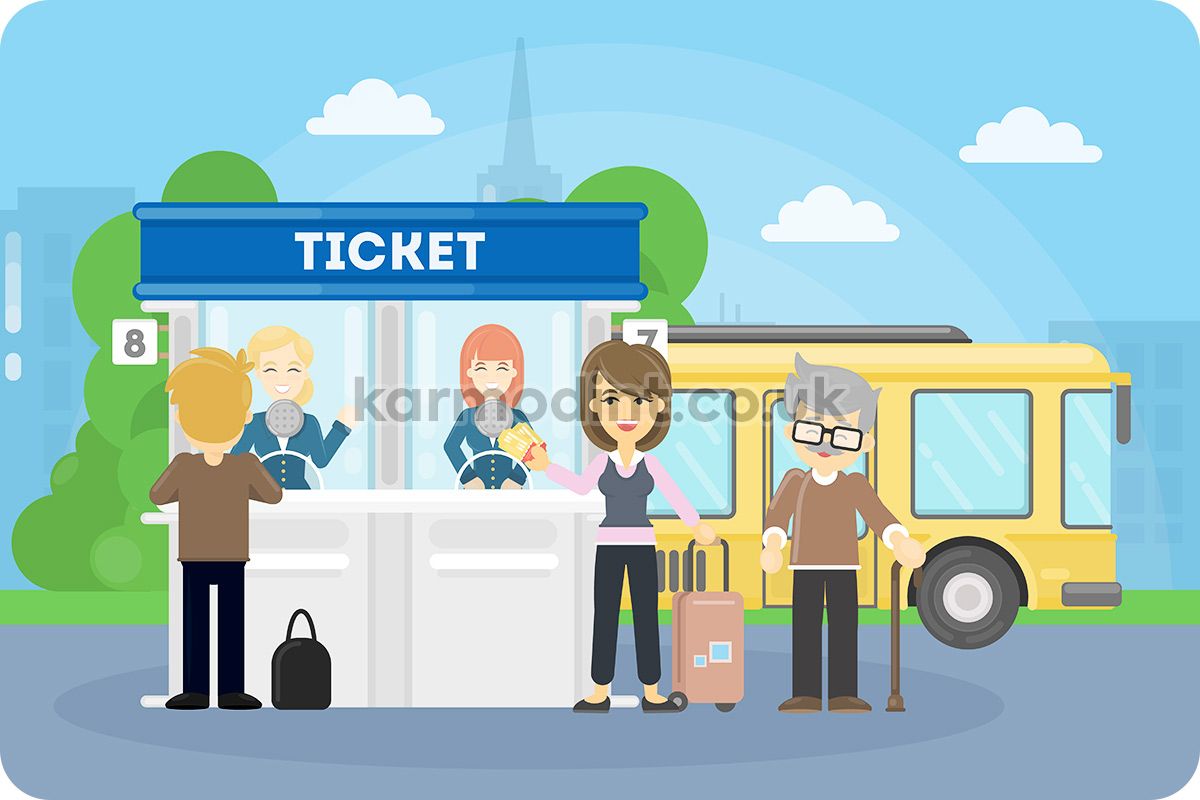
These kiosks are constructed using modular building techniques, allowing for efficient assembly and disassembly. They offer the flexibility to adjust the size, layout, and features of the ticket booth according to specific requirements and can be designed to include ticketing systems, seating arrangements, storage areas, and other amenities necessary for efficient ticket sales.
In ticket booth projects, prefab ticket booths are also commonly utilized. These booths are pre-manufactured off-site and delivered as complete units. Prefab ticket booths offer a cost-effective and time-saving solution, as they are constructed in a controlled environment and then transported to the desired location. These booths can be customized to incorporate the necessary equipment and features, ensuring they meet the specific needs of the ticketing operation.
Ticket booth projects may also involve offering discounts or promotions to enhance customer engagement and attract more visitors. Ticket booths may provide special discount rates for specific events, group ticket sales, or early bird promotions. These strategies aim to increase ticket sales and create a positive customer experience.
Ticket Booths Sizes
When it comes to ticket booths, various sizes are available to accommodate different needs and requirements. The size of a ticket booth depends on factors such as the expected foot traffic, available space, and the specific functionalities required. Here are some common ticket booth sizes:
- Small Ticket Booths: Small ticket booths are typically compact and designed for locations with limited space. They are suitable for events or venues with low to moderate foot traffic. These booths may have a minimal footprint and can accommodate one or two ticket sellers.
- Medium-Sized Ticket Booths: Medium-sized ticket booths offer a slightly larger footprint and can accommodate more staff members. They are often used for events or venues with moderate to high foot traffic. These booths may have additional counter space, seating areas, and storage compartments.
- Large Ticket Booths: Large ticket booths are spacious structures designed to handle high volumes of visitors. They may feature multiple ticket windows, separate staff areas, and waiting areas for customers. These booths are commonly found in busy event venues, theme parks, or stadiums.
- Customizable Ticket Booths: Ticket booth sizes can also be customized based on specific project requirements. Customization allows for tailoring the booth's dimensions to fit the available space or to incorporate unique features such as additional counters, display areas, or accessibility options.
It's important to consider the expected foot traffic, space limitations, and operational needs when determining the appropriate size for a ticket booth. By selecting the right size, organizers can ensure smooth ticketing operations and a positive customer experience.
Used Ticket Booths Disadvantages
While used ticket booths may seem like a cost-effective option, there are some disadvantages to consider. Here are a few points to keep in mind:
- Limited Warranty: Used ticket booths often come with limited or no warranty. This means that if any issues or damages arise after the purchase, the buyer may be responsible for repairs or replacements.
- Wear and Tear: Depending on the age and condition of the used ticket booth, it may exhibit signs of wear and tear. This can include cosmetic damages, structural issues, or functional problems that may require additional maintenance and repairs.
- Compatibility and Customization: Used ticket booths may not always be compatible with the specific requirements of the intended use. They might not have the desired features, layout, or size needed for your project. Customization options may also be limited compared to new ticket booths.
- Limited Lifespan: Used ticket booths have already been in use, which means they may have a shorter remaining lifespan compared to new booths. The buyer should consider the longevity of the booth and factor in any potential maintenance or replacement costs in the future.
- Availability and Selection: Finding the exact used ticket booth model, size, or configuration that meets your requirements can be challenging. The availability of used booths may vary, limiting your options when it comes to design, layout, and functionality.
When considering used ticket booths, it's essential to thoroughly inspect the condition, assess the potential costs of repairs or upgrades, and evaluate the overall suitability for your specific needs. It's also advisable to consult with professionals in the industry who can provide guidance and assistance in finding the best solution for your ticketing operations.

